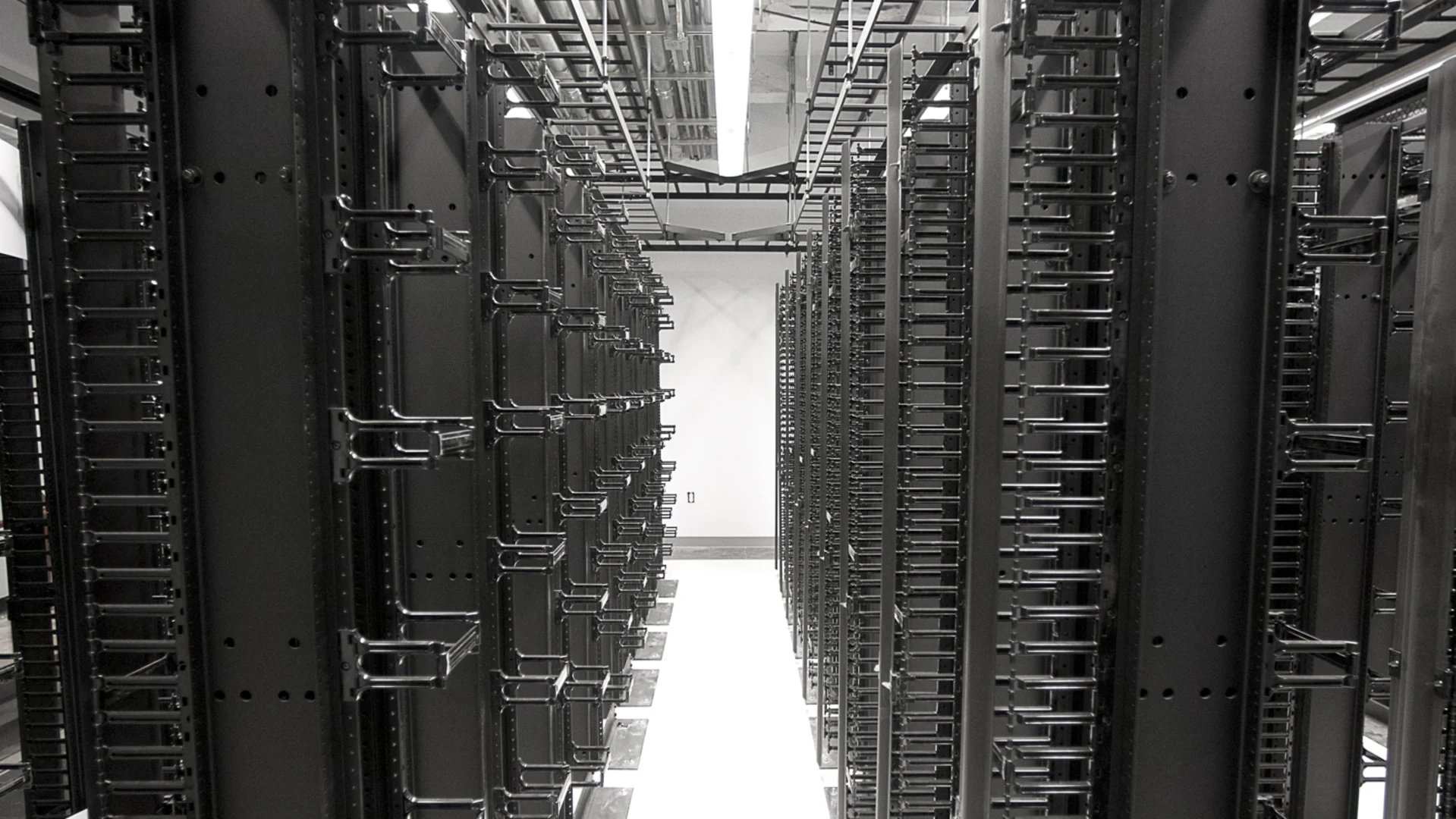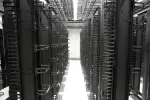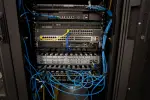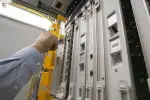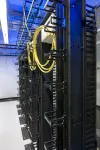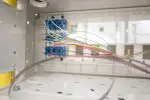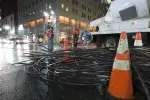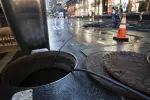We tend to think of the Internet as vast and infinite, an amorphous nebula of tweets, cats, and words spilled on Flappy Bird. And to an extent, we’re right–according to some estimates, 90% of the world’s data was generated in just the last two years alone. Yet the Internet and its crushing presence is very much finite, inasmuch as the space and infrastructure required to contain it is, physically speaking, limited in form. Reddit’s server rooms take up space. And so does your computer.
Which is why in many ways, this Internet–the physical Internet–is even more mysterious to us than the more-familiar information universe housed inside it. And now, one ambitious photographer would like to change that. Invisible Networks is the ongoing project of Shuli Hallak, whose end goal is to showcase the palpable parts of the net we otherwise never think about. Part fine art project, part editorial, Invisible Networks sucks us into the weird alternative universe of massive carrier hotels and amazonian broadband networks pulsing beneath our cities. And–perhaps unsurprisingly–it’s pretty damn fascinating.
After getting her MFA at the School of Visual Arts in 2005, Hallak’s journey as a photographer led her to do an artist series on cargo ships. It was there the seed for Invisible Networks was planted. “I photographed the whole world of cargo shipping for like two years and got access to a port. I was really fascinated with how ships come in and how containers come off the ships,” she told Fast Company. “There was this whole invisible network of infrastructure we don’t see.” I sat down with Hallak over coffee on a slushy day in February to talk about her goals, the creative process, and the Internet most of us are unfamiliar with. The following is an edited transcript.
FAST COMPANY: So a cargo ship, huh? What were the accommodations like?
SHULI HALLAK: Not too bad! It was like a Best Western. It was crazy. And a lot of fun.
So I’m guessing that living on a cargo ship is not where you came up with the idea to photograph the Internet.
No, no. It’s been a long, organic evolution. After cargo ships, I became fascinated with all the invisible stuff that makes our world run that we don’t see, like energy. Coal, oil, renewable resources–stuff like that. In the back of my mind, I was always thinking about The Matrix, you know? [Laughs] The world we really live in and the whole illusion thing.
